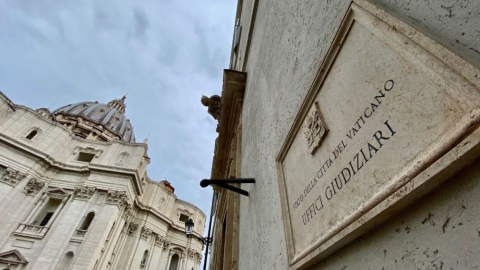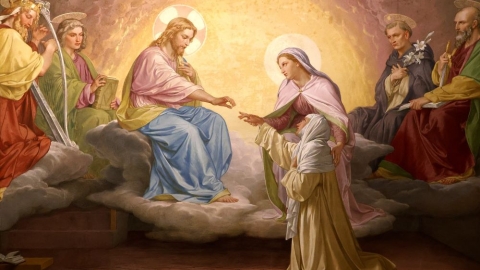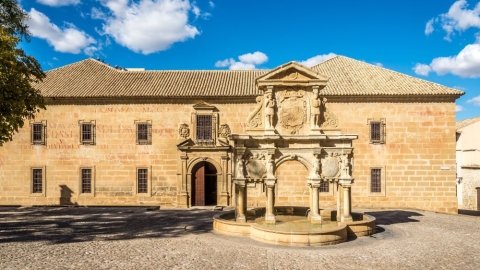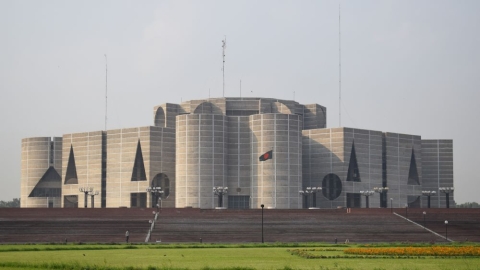SSPX Marriages not only Valid, but Incontestable

In light of last week's news from Rome regarding the SSPX and our marriages, we here present some initial reflections on what it means for us practically, the state of necessity, and the future.
On September 1, 2015, the pope announced that the faithful who had recourse, during the Holy Year of Mercy, to priests of the Society of St. Pius X to go to confession would receive “valid and licit absolution of their sins”. In a press release published that same day, the General House of the Society thanked the pope and recalled that: “In the ministry of the sacrament of penance, we have always relied, with all certainty, on the extraordinary jurisdiction conferred by the Normae generales of the Code of Canon Law. On the occasion of this Holy Year, Pope Francis wants all the faithful who wish to confess to the priests of the Society of St. Pius X to be able to do so without being worried.”
On November 20, 2016, Pope Francis’ Apostolic Letter Misericordia et Misera (n. 12) extended the faculties for confession granted on September 1, 2015, beyond the Year of Mercy. While the crisis of the Church is unfortunately still the same, the persecution that unjustly deprived the priests and faithful of ordinary jurisdiction has come to an end, now that this jurisdiction has been granted by the Sovereign Pontiff.
On April 4, 2017, a letter was published from the Prefect of the Congregation for the Doctrine of the Faith and President of the Pontifical Ecclesia Dei Commission, addressed to the Ordinaries of the bishops’ conferences. Cardinal Müller reminds them of Pope Francis’ decision “to grant all priests of said Society the faculty to validly administer the Sacrament of Penance to the faithful such as to ensure the validity and liceity of the Sacrament.” He then announces the new dispositions of the Holy Father, who, in the same spirit,“ has decided to authorize Local Ordinaries the possibility to grant faculties for the celebration of marriages of faithful who follow the pastoral activity of the Society.” (Letter of March 27, 2017).[1]
Either the local bishops, “insofar as possible”, will delegate a diocesan priest to receive the vows according to the traditional rite before the celebration of the Mass by a Society priest, or “the Ordinary may grant the necessary faculties to the priest of the Society who is also to celebrate the Holy Mass.”
Cardinal Müller ends his letter by recalling the pope’s intention. For one, he wishes to remove “any uncertainty regarding the validity of the sacrament of marriage” contracted before a Society priest. If he receives the delegation from the bishop, he can no longer be considered irregular when he celebrates a marriage. On the other hand, the pope wishes to facilitate “the process towards full institutional regularization”. In fact, the cardinal’s letter mentions “the objective persistence of the canonical irregularity in which for the time being the Society of St. Pius X finds itself.”
Anyone can see the skillful way the power to confess or receive marriage vows is granted; in other words, the way the ministry of the priests of an irregular ecclesiastical society – at least ad casum – is regularized. But the pope’s new dispositions are a way of recognizing the present reality of the apostolate accomplished by the Society of St. Pius X in all the countries where it is present, and this apostolate is even encouraged in a way.
The validity of SSPX Marriages
From now on, just as we no longer have to invoke an extraordinary jurisdiction to hear confessions validly, we no longer have to invoke the state of necessity to validly marry couples, unless the bishop opposes the new provisions and refuses the delegation requested by the pope.
This does not mean that the state of grave necessity has come to an end, but only that the authorities of the Church no longer refuse to grant Tradition some means of development. The pre-conciliar Mass was recognized in 2007 as never having been abrogated. The unjust excommunications of the bishops of the Society were lifted in 2009. The non-recognition of the valid ministry of SSPX priests in the sacrament of penance came to an end in 2015. The alleged irregularity of the Society priest, the authorized witness to the sacrament of marriage, has now been lifted, for the good of the spouses.
However, just as the sacrament of penance was not invalidly conferred by the priests of the Society of St. Pius X before 2015, neither were the marriages celebrated without the official delegation of the local bishop or parish pastor.
Indeed, Church law states that in order to be valid, a marriage must be celebrated before the parish priest or his delegate, and in the presence of at least two witnesses (1917 Code, canon 1094; 1983 Code, canon 1108). But the priests of the Society of St. Pius X are not parish priests. That is why some try to pretend that, without a delegation, a priest of this society cannot receive marriage vows. Such a marriage would be invalid because of its lack of canonical form.
But the same Church law also provides for the following extraordinary situation (1917 Code, canon 1098; 1983 Code, canon 1116): “If a person competent to assist according to the norm of law cannot be present or approached without grave inconvenience.” If this situation is likely to last at least one month, then the Church declares valid a marriage celebrated before only the witnesses. If a non-delegated priest can be present, he must be called upon to receive the vows. This legislation is a simple application of the fundamental principles of Canon law: The supreme law is the salvation of souls, and The sacraments are for men who are well-disposed.
And if by chance there still remains any doubt as to this extraordinary situation, we answer that in cases of doubt, the Church gives supplied jurisdiction (1917 Code, canon 209; 1983 Code, canon 144). So all doubt is removed, and the marriages celebrated in the Society of St. Pius X, even without a delegation, were most certainly valid, because of the state of necessity.
The State of Necessity Remains
This state of grave necessity in the Church has not disappeared. This is not to deny the terrible reality.
Indeed, ever since the Second Vatican Council, and especially the new Code of Canon Law in 1983, the first end of marriage, which is the procreation and education of children, has been reduced in favor of the mutual help between the spouses, in a personalist conception of the dignity of love that blurs the primacy of the common good of the familial society.
The recent Synod on the family is another sad illustration that this state of necessity is still a reality. As are the scandalous declarations made by certain prelates and ecclesiastical dignitaries concerning cohabitants and homosexuals, that would lead one to believe that these unions contain positive values, and even values compatible with the sanctity of marriage.
We also recall Bishop Fellay’s Petition to the Holy Father after the publication of the pontifical document Mitis Judex (August 15, 2015): “The canonical changes required by the Moto Proprio Mitis Iudex Dominus Iesus facilitating declarations of nullity will de facto open the door to legal proceedings authorizing “Catholic divorce,” even if goes by another name” (September 15, 2015).
Lastly, certain statements in the Apostolic Exhortation Amoris Laetitia on the divorced and “remarried”, who could receive the sacraments of penance and the Eucharist while living as if married in their second union, remain stumbling blocks to the Catholic conscience.
For all these reasons, the faithful find themselves in a situation of necessity that allows them to turn to the priests of Tradition. Under the laws of the Church, their marriage is certainly valid. For the pope to ask the bishops today to facilitate their choice in ensuring the regularity of the authorized witness, i.e., the priest who receives the spouses’ vows, does not put an end to the objective state of the crisis of the Church.
There is no doubt that, were the Ordinary to refuse to designate a delegate and even to “directly grant the necessary faculties to the Society priest”, the latter would celebrate the marriage validly because of this state of necessity, and as for the bishop, he would be manifestly opposing the will of the Head of the Church.
Implementation of These Provisions
Pope Francis wants the priests of the Society of St. Pius X to be able to celebrate marriages that are certainly licit, valid, and incontestable, for the good of the spouses. “We hope that all the bishops share the same pastoral solicitude,” read the Society’s press release on April 5. We must also hope that diocesan tribunals will no longer be able to declare annulments for lack of due canonical form for marriages celebrated in Tradition. By putting an end to this scandal that the Roman Rota has tolerated for far too long, the pope also procured a great good.
The new arrangements that make it possible to receive a delegation from the Ordinary do not mean that it is the modern priests who will prepare, organize, or celebrate the marriages of our faithful, obviously. The priests of Tradition cannot entrust the faithful who come to them to prepare holily for marriage to those who profess false principles or could endanger the faith of the future spouses by imparting to them an erroneous conception of Christian marriage. Pope Francis simply wishes the Ordinaries to give delegation to SSPX priests. His approach is essentially legal. As Fr. Cédric Burgun, vice-dean of the Faculty of Canon Law in Paris, declared: “The Pope is not settling the doctrinal debate. He is removing ambiguities on the legal issue, and making valid and licit the marriages that will be celebrated under the conditions decreed by Rome.” (RCF, April 5, 2017)
The implementation of these provisions will be delicate, especially if it is a diocesan priest who comes to receive the vows. But it seems that it will be easy to explain that the fiancés would be uncomfortable with making their marriage vows before a priest they do not know, and will probably never see again. Many want a priest they know and respect, sometimes even a relative, to celebrate their engagement and wedding. The Roman document’s “insofar as possible” seems broad and vague enough to convince the local bishop of the practical and concrete difficulties its application presents.
It is especially foreseen for the Ordinary to “directly grant the necessary faculties to the Society priest”. The ideal would be for the bishop, for good pastoral reasons, to give directly to SSPX priests the delegation to celebrate the marriages of their faithful. Notifying the diocese, as requested in the April 4 letter, is no problem at all since it is already done in all of the districts of the Society.
In order for these Roman dispositions in favor of marriages in Tradition to be received without doubt or ambiguity by all priests, the Superior General, Bishop Fellay, has requested canon lawyers and pastors with much experience to draw up – under the authority of the General House – formal guidelines defining a common discipline for all the districts of the Society of St. Pius X.
[1] The Pope’s words are addressed to the bishops because it belongs to the bishops or the parish pastor to delegate. (See Council of Trent, decree Tametsi, November 11, 1563, DzS 1816.) Unlike the sacrament of confession which concerns the internal forum, the sacrament of marriage concerns the external forum as are all the public and social acts of the children of the Church. These provisions are for the good of the faithful of the Society of St. Pius X, and consequently, they affect the ministry of the priests.
Source: FSSPX/MG – DICI, April 11, 2017





